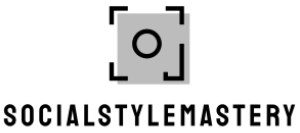Introduction
In today’s digital age, collaborative work tools have become indispensable for organizations worldwide. From project management platforms to real-time communication applications, these tools facilitate seamless cooperation among team members, regardless of their geographical locations. However, with the increased reliance on these technologies comes heightened concerns about their security. This article explores the provocative question: can hacking actually improve the security of collaborative work tools?
Understanding Collaborative Work Tools
Collaborative work tools encompass a wide range of software applications designed to assist teams in working together effectively. These include tools like Slack for communication, Trello for project management, Google Workspace for document collaboration, and many others. While these platforms offer numerous benefits, they also present potential vulnerabilities that malicious actors can exploit.
Common Security Challenges
- Data Breaches: Unauthorized access to sensitive information can lead to significant financial and reputational damage.
- Phishing Attacks: Deceptive attempts to obtain confidential data through seemingly trustworthy communication.
- Insider Threats: Employees or collaborators with malicious intents or those who inadvertently compromise security.
- Software Vulnerabilities: Flaws in the software that can be exploited to gain unauthorized access or disrupt services.
The Role of Hacking in Enhancing Security
At first glance, hacking is synonymous with malicious intent and cyber threats. However, ethical hacking, often referred to as penetration testing, plays a crucial role in identifying and addressing security weaknesses within collaborative work tools.
What is Ethical Hacking?
Ethical hacking involves authorized attempts to breach a system’s security to identify vulnerabilities before malicious hackers can exploit them. Ethical hackers use the same tools and techniques as their malicious counterparts but do so with the system owner’s permission and with the intent to improve security.
Benefits of Ethical Hacking for Collaborative Tools
- Identifying Vulnerabilities: Regular penetration testing can uncover hidden flaws that might be overlooked during standard security assessments.
- Enhancing Defense Mechanisms: By understanding how attacks are carried out, developers can bolster their defenses against similar real-world threats.
- Compliance and Standards: Ethical hacking helps ensure that collaborative tools comply with industry standards and regulations, reducing the risk of legal repercussions.
- Building Trust: Demonstrating a commitment to security through regular testing can enhance user trust and confidence in the platform.
Case Studies: Ethical Hacking in Action
Case Study 1: Improving Communication Platforms
Communication tools like Slack and Microsoft Teams are prime targets for cyber attacks due to the sensitive information often shared on these platforms. Ethical hackers can simulate various attack scenarios, such as phishing attempts or unauthorized access, to identify potential weaknesses. For instance, by testing the platform’s authentication mechanisms, ethical hackers can recommend stronger encryption methods or multi-factor authentication to enhance security.
Case Study 2: Securing Project Management Software
Project management tools like Trello and Asana store critical project data, timelines, and team communications. Ethical hackers can assess these platforms for data leakage vulnerabilities or weaknesses in access controls. By identifying and addressing these issues, organizations can prevent unauthorized access to sensitive project information.
Potential Risks of Hacking
While ethical hacking offers numerous benefits, it is not without risks. Unauthorized hacking attempts, even with good intentions, can lead to unintended consequences such as data loss, service disruptions, or legal implications. Therefore, it’s imperative to conduct ethical hacking within a controlled environment, with proper authorization and clear guidelines.
Ensuring Safe Ethical Hacking Practices
- Obtain Proper Authorization: Ethical hacking should always be conducted with explicit permission from the system owner.
- Define Scope Clearly: Clearly outline the boundaries of the testing to avoid unintended disruptions.
- Use Qualified Professionals: Engage certified ethical hackers who adhere to industry standards and best practices.
- Maintain Transparency: Keep all stakeholders informed about the testing process and findings to ensure collaborative remediation efforts.
Balancing Security and Usability
One of the challenges in enhancing security is maintaining a balance between robust protection and user-friendly experiences. Overly stringent security measures can hinder productivity and user adoption of collaborative tools. Ethical hacking helps strike this balance by identifying security measures that provide effective protection without compromising usability. For example, implementing single sign-on (SSO) solutions can enhance security while simplifying the login process for users.
The Future of Hacking in Security Enhancement
As collaborative work tools continue to evolve, so do the tactics employed by hackers. The future will likely see an increased emphasis on proactive security measures, with ethical hacking playing a pivotal role in safeguarding these platforms. Advancements in artificial intelligence and machine learning will also enhance the capabilities of ethical hackers, enabling more sophisticated and efficient vulnerability assessments.
Emerging Trends
- AI-Driven Penetration Testing: Leveraging artificial intelligence to automate and enhance vulnerability detection.
- Continuous Security Monitoring: Implementing real-time monitoring systems to detect and respond to threats swiftly.
- Collaborative Security Efforts: Fostering a culture of security awareness and collaboration among users and developers.
- Integration of Security in DevOps: Embedding security practices within the development and operations processes to ensure security is a foundational aspect of tool development.
Conclusion
While hacking is often associated with cyber threats and malicious activities, ethical hacking serves as a valuable tool in enhancing the security of collaborative work platforms. By proactively identifying and addressing vulnerabilities, ethical hackers help create more secure environments where teams can collaborate effectively without compromising sensitive information. As technology continues to advance, the role of hacking in security enhancement will undoubtedly become even more critical, ensuring that collaborative work tools remain reliable and secure in an ever-evolving digital landscape.
